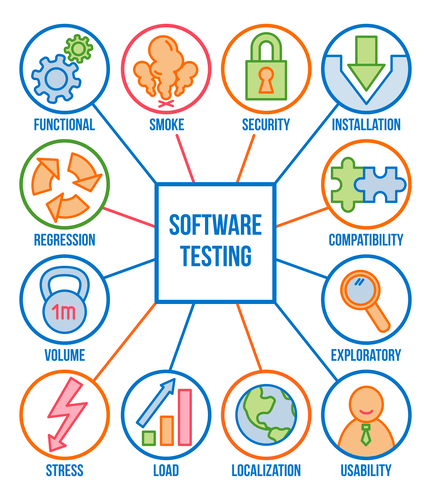SQL databases are older so they have a more established and fixed schema design and structure. SQL is a better choice if you’re dealing with an RDBMS (relational database management system) and want to analyze the data’s behavior or want to build custom dashboards. MongoDB and Cassandra are examples of non-relational database systems, and follow NoSQL design and structure. MySQL and PostgreSQL are examples of relational database management systems that utilize SQL. But one thing all these databases had in common, was that the Structured Query Language was no longer a good fit for using them.
Relational databases store data in structured tables that have a predefined schema. To use relational databases, a data model must be designed and then the data is transformed and loaded into the database. SQL or the Structured Query Language is the most common and popular programming language for the relational database management system. It is a language designed to extract, store, insert, delete, update and manage data for structured data and strategic analysis. NoSQL does not support JOINs, since its data isn’t organized into tables.
Summarizing SQL vs NoSQL
For small applications with low traffic, you could get away with just creating collections and documents that contains data the way you need it. But it’s still good practice to get into the habit of thinking about data and how you might use it in the future. While this increases the number of document writes you end up doing to your database, it’ll create savings through the massive reduction in total document reads. On balance, you’re going to end up with more document reads than writes — so it’s better to optimize for reads.

You will learn about non-relational databases and then learn the pros and cons of using relational databases versus non-relational databases. Finally, you will learn some use cases followed by a NoSQL crash course. You should consider each situation individually, taking into account the shape of your data and workload requirements. At the same time, keep in mind that you’re not limited to one database type over the other.
NoSQL vs. SQL Databases
3 min read – Building on previous innovation, this year introduced AI Draw Analysis, which ranked every player’s draw on a favorability scale. One method is to use composite mapping and aggregated documents. While the fault is on the side of the developers and not Firebase, the incident serves as a cautionary tale for many. However, it shouldn’t put you off from using Firebase in general. It’s a solid platform and can be a good solution for your MVP when put into balance against time and cost savings. Stay up to date on the latest in technology with Daily Tech Insider.

The decision of which type of database to use – SQL or NoSQL – will depend on the particular needs and requirements of the project. For example, if you need a fast, scalable, and reliable database for web applications then a NoSQL system may be preferable. On the other hand, if your application requires complex data queries and transactional support then an SQL system may be the better choice. Ultimately, there is no one-size-fits-all solution – it all comes down to what you need from your database and which type of system can provide that in the most efficient manner.
Best Programming Language For Data Analysis: Python, R, Or SQL
Most software ecosystems around the different NoSQL databases aren’t as mature yet. While there are advances, you still haven’t got supplemental tools which are as mature and powerful as those available for popular SQL databases. Long story short, NoSQL provides cost-efficient storage, flexibility, and scalability in data stores.
One aspect you might consider is the current stage of development of the database technology. SQL has been around since the 1970s and has experienced a longer timeline of development, while NoSQL was only first used in the 1990s. So, for beginners, starting with SQL and then moving to NoSQL might be the best choice. when to use NoSQL vs SQL SQL often allows for faster data storage and recovery, and works better with complex queries. NoSQL the actual program appears to be a relational database implemented in awk using flat files on the backend. Another significant difference between SQL and NoSQL databases is their approach to database transactions.
Storage
These relational databases, which offer fast data storage and recovery, can handle great amounts of data and complex SQL queries. It’s built for supporting basic data structures and large data sets within relational databases, and it is best-suited for handling structured data. Choosing the right database for your project depends on various factors, including the nature of your data, scalability requirements, and development flexibility.
- However, vertical scaling can be quite expensive as the volume of data grows.
- Many modern data management issues cannot be handled by standard SQL databases.
- If your data is very structured and ACID compliance is a must, SQL is a great choice.
- The native connector extracts data from a source, transforms it into the correct format for MongoDB, and loads it into the database.
- NoSQL databases are well-suited for situations when your data is only partially structured or you need to quickly build and scale something.
- While both databases are viable options still there are certain key differences between the two that users must keep in mind when making a decision.
NoSQL databases are horizontally scalable and can ultimately become larger and more powerful if required. All of this makes NoSQL databases the preferred choice for big data applications. Differentiating between the types of databases (namely SQL and NoSQL) is a valuable skill for a couple reasons. If you’re building your own app, you’ll have to choose the right database https://www.globalcloudteam.com/ technology for your budget and needs, explains Ben Stone, Senior Curriculum Developer at Codecademy. And if you’re applying for jobs as a Software Engineer, you might be asked to explain the difference between relational and non-relational databases. “It’s a pretty common interview question, so you need to be able to articulate and compare and contrast them,” Ben says.
Database Scaling
The key point of this article is that even in the face of SQL’s many strengths, NoSQL databases are making rapid progress for the reasons stated above. The easiest way to get started for free with the most popular NoSQL database, MongoDB, is by trying out MongoDB Atlas, a fully managed version of MongoDB that runs on all the popular cloud platforms. By understanding the rise in popularity of NoSQL databases, we should be able to shed light on when it makes sense to use NoSQL. What has happened in a broad sense is that the frustrations that led the early internet companies to create NoSQL databases are now shared by almost every organization. This article seeks to explain why NoSQL is growing in popularity and when is NoSQL a good choice for building applications.
In the long run, it is better to add more buildings than floors as that is more stable (Less chance of creating a Leaning Tower of Pisa!!!). Thus, NoSQL can ultimately become larger and more powerful, making NoSQL databases the preferred choice for large or ever-changing data sets. And while that is the most notable difference between the databases, you might still be wondering what exactly that means for you. If you are looking for consistency, reliability, and a system to query structured data you choose SQL databases. Some relational database products support pure SQL, but many include enhanced versions of the language—such as SQL Server’s Transact-SQL (T-SQL)—to accommodate product-specific features. However, all SQL databases support the core ANSI/ISO language elements.
Research shows extensive use of AI contains data breaches faster and saves significant costs
Perhaps the most controversial comparison, NoSQL is regularly quoted as being faster than SQL. This isn’t surprising; NoSQL’s simpler denormalized store allows you to retrieve all information about a specific item in a single request. There are practical, historical and commercial reasons why these stacks evolved — but don’t presume they are rules. You can use a MongoDB NoSQL database in your PHP or .NET project.
